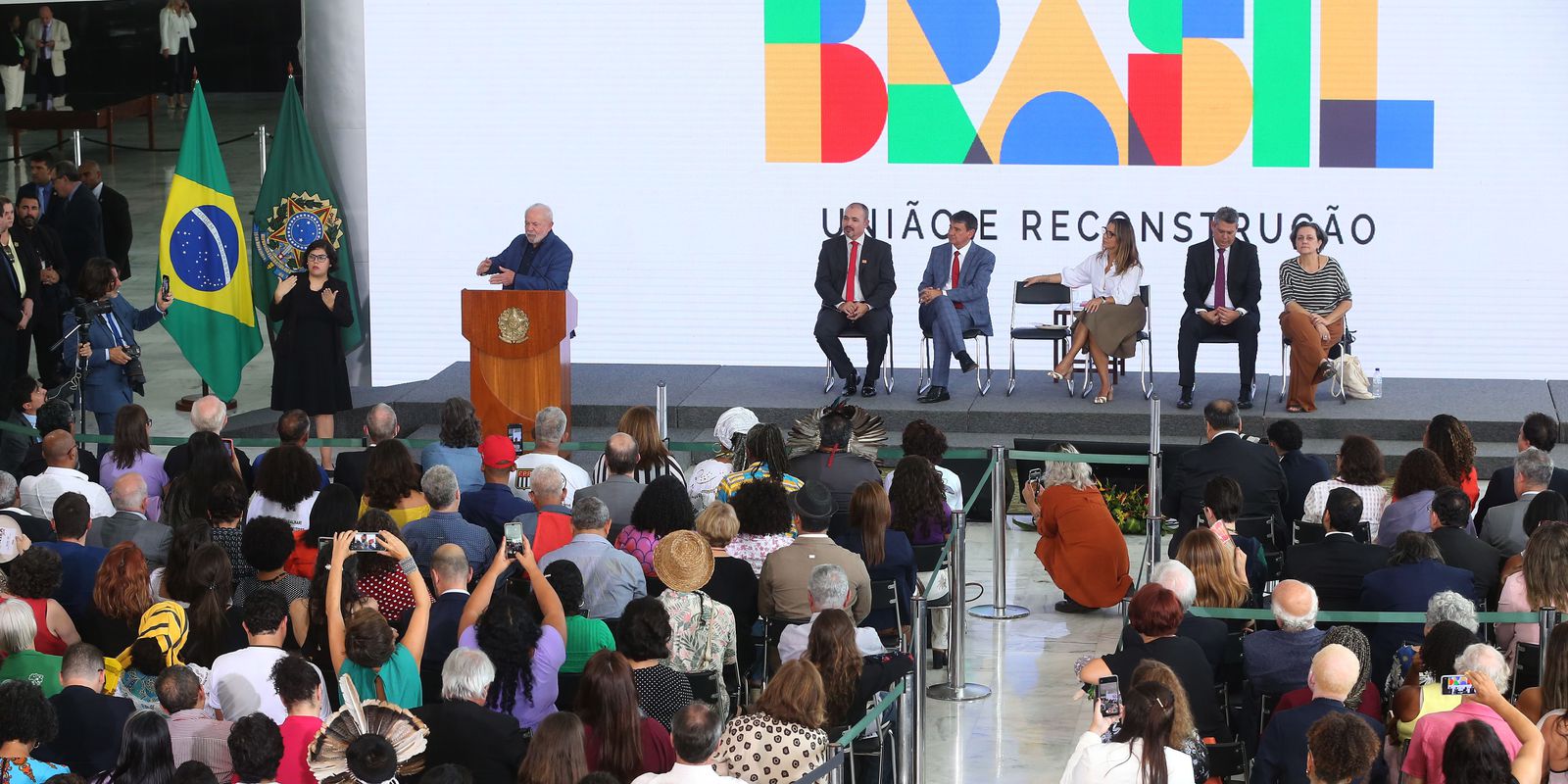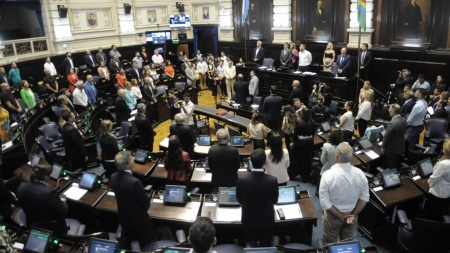President Luiz Inácio Lula da Silva reinstated this Tuesday (28) the National Council for Food and Nutritional Security (Consea), deactivated at the beginning of the previous administration, in 2019. institutional space for participation and social control in the formulation, monitoring and evaluation of public policies for food and nutrition security and the fight against hunger.
“Fighting hunger is a very serious thing. Because it is true that if we produce too much food in this country and there are people who are hungry, it means that someone is eating more than they should so that the other can eat a little; it means we are wasting food between production and consumption; it means that something is wrong, and the most wrong thing is that people don’t have money to buy something to eat”, said Lula, during a ceremony at the Planalto Palace.
The president signed the decree that updates the functioning of Consea and the Interministerial Chamber of Food and Nutritional Security (Caisan), which will be composed of 24 ministries. In the new configuration of the federal government, Consea will integrate the structure of the General Secretariat of the Presidency.
Lula announced that he asked the Ministry of Agrarian Development to discuss programs to increase food production and the return of the minimum price policy to avoid losses to rural workers.
“Let’s make sure that if people produce in excess, the government will buy that food to distribute where it needs it. We are going to try to have a big discussion, not only with family farming, but we have 4.6 million properties with less than 100 hectares, and we need to call these people to increase the production of healthy food”, defended the president, highlighting that obesity and the consumption of processed foods is also a problem to be fought in the country.
Also reinstated today, for a 2-year term, were the counselors and president of Consea, nutritionist and researcher Elisabetta Recine, who made up the collegiate when it was deactivated, in January 2019.
the decree with the recomposition of the board was published this Monday (27) in an extra edition of Official Diary of the Union.
The president of CONSEA, Elisabetta Recine, argued that it is necessary to articulate policies to fight hunger, poverty, obesity and the climate crisis, increase income and generate jobs for the population, valuing the minimum wage and guaranteeing land and territory for a more just and egalitarian human development in the country.
“Consea is the guardian of real food. We are committed to ending hunger in the country. We learn from what we have achieved and what we have lost over the years. The eradication of hunger and the guarantee of healthy food requires confronting gender and racial inequalities, the production of real food, produced by family farming, by indigenous peoples, by quilombolas, by traditional peoples and communities, which have an agroecological basis and respects food culture and nature”, highlighted the researcher.
The collegiate is already starting work this Tuesday afternoon and, among the first acts, is the convening of a conference, which should take place by the end of this year. The fifth and last edition was held in 2015, in Brasília, with the theme “Real Food, in the Countryside and in the City”. In November 2018, Consea approved the call for the sixth conference, which should have been organized by the federal government in 2019, which did not happen due to its deactivation.
According to Elisabetta, special attention will also be given to the situation of the Yanomami people so that Consea can take ownership of the strategies that are in progress and can be inserted in the search for solutions for the indigenous population.
The presence of illegal mining in the Yanomami Territory, in Roraima, has caused a humanitarian crisis in the region, more visible in the delicate state of health of children and the elderly, who suffer from malnutrition and other preventable diseases.
Historic
Created in 1993 by then-president Itamar Franco, Consea was revoked two years later and replaced by the Comunidade Solidária program, under the management of Fernando Henrique Cardoso. In 2003, Lula re-established CONSEA, which ended up being deactivated at the beginning of Jair Bolsonaro’s government.
For the General Secretariat of the residency, the return of Brazil to the United Nations Hunger Map is identified as one of the most drastic consequences of the dismantling of policies promoted in the last four years in this area.
The folder highlights that, in 2014, Brazil left the Hunger Map by reducing by 82% the population of Brazilians considered to be undernourished. “International recognition was the result of public policies adopted, since 2003, by the Lula and Dilma Rousseff governments, with a strong performance by Consea”, said the folder.
According to a 2022 survey by the Brazilian Research Network on Sovereignty and Food and Nutritional Security, 33.1 million people do not have enough to eat in the country and more than half (58.7%) of the Brazilian population lives with food insecurity to some degree, whether mild, moderate or severe.
After the closure of Consea, there was also an emptying of resources for programs such as the National Food Acquisition Program (PAA), the National School Feeding Program (Pnae) and the National Support Program for Family Agriculture, among others.
For the Minister of the General Secretariat, Marcio Macêdo, of all the country’s problems, the fight against hunger is “the most revolting, shameful and criminal”.
“Revolting because we are one of the world’s largest food producers, with land and climate destined and designed for sustainable agriculture; because we have more than enough resources to guarantee the food and nutritional security of our people and yet we have millions of people going hungry right now in Brazil. Shameful because President Lula had already removed, like Consea, Brazil from the Hunger Map and structured the largest food security program in the world. Criminal because it denies a considerable portion of the people the human right to healthy food, sustainable food and nutritional security and, ultimately, the right to life”, said Marcio Macêdo in his speech.
During the last few years, even with the extinction of Consea, the collegiate of presidents of state councils on Food Security and social movements continued to support the National System of Food and Nutritional Security (Sisan) not to regress even further. One of the most far-reaching initiatives was the creation, in 2019, of the Popular Conference for Rights, Democracy, Sovereignty and Food and Nutrition Security, headed by more than two dozen organizations.
Mobilization
Among the proposals that emerged at Consea, and became public policies, are the inclusion of the right to food in the Constitution; approval of the Organic Law and the National Plan for Food and Nutrition Security; the Crop Plan for Family Farming; the National Policy on Agroecology and Organic Production; the Food Acquisition Program; and institutional purchases of food from family farming for schools and other public bodies.
Consea is made up of two-thirds of civil society representatives, who act on a voluntary basis, and one-third of government representatives. In the case of civil society, for example, these are entities representing family farmers, fishermen, traditional peoples and communities, peasant women, collectors of recyclable materials, researchers, defenders of children and consumer rights, representatives of people with special dietary needs, population black people, indigenous peoples and others.
For the federal government, the ministries and secretariats that deal directly with the food and nutrition agenda participate.
In the space for discussion at Consea’s plenary sessions and conferences, counselors have the opportunity to share knowledge and present solutions in defense of food produced through access to and proper management of natural resources, respecting socio-biodiversity and cultural differences.
listen on National Radio Agency:

















